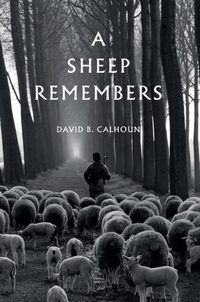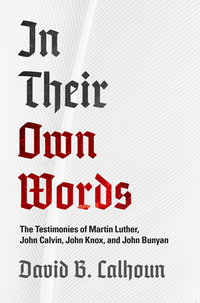 |
A Sheep RemembersPaperback, 137 pg. Read: December 12, 2021 |

All the circumstances of the pilgrimage—want, weariness, journeyings, wanderings, perplexities, the shadowed mysteries of the valleys, the thronging enemies, and the infinite beyond—are present; and the singer knows them. They are, however, only mentioned to sing of their negation by the graciousness of the Shepherd. Want is cancelled. For weariness he has green pastures of rest. On journeys he leads by pleasant ways. From wanderings he restores. Through perplexities he guides, and that by right ways. In the valleys of death’s shadow his presence cancels fear. In the presence of enemies he makes a feast, and he is a host royal in bounty.
What’s A Sheep Remembers About?
RIght out of the gate, Calhoun cites Spurgeon: “I cannot say anything new on this text…But I can remind you of old and precious truths,” and that’s pretty much Calhoun’s mission statement, reminding readers about Psalm 23. He’s not trying to shake things up with a new understanding, he’s not going for bold scholarship, or something along those lines. It’s simply an exercise in taking a slow look at what we already know, to remember the old and precious truths.
Each chapter takes a verse (or less) and reflects on it—the chapter starts with a version of the Psalm or a hymn based on it, then there’s a commentary on the phrase(s) examined, something written by a shepherd to help the reader understand (literal) sheep and their ways, illustrations from others to help understand the theme of the chapter and then a part of his own life story. The commentary sections are largely strings of quotations from other writers of various theological persuasions and varying degrees of orthodoxy, with a little addition from Calhoun–mostly to tie them together.
Preparing to Die
Calhoun talks about this in the book a bit—the Puritans had a practice to prepare for death, when terminally ill (or at least when they would suppose they were), they’d meditate on death, and the state of their soul as they neared it. In many ways, that’s what this book was for him.
Calhoun had been battling cancer for years, and he knew his death was imminent—he actually died shortly after delivering the final version of the manuscript to the publishers. You can tell from the latter chapters that he was very aware of the shortness of his time. Which adds some poignancy to this work—particularly the chapters concerning “Yea, though I walk through the valley of the shadow of death” and “And I will dwell in the house of the Lord forever.”
Supplementary Material
I don’t typically talk about this kind of thing—because, why would I? But these merit a mention.
Calhoun includes an Addendum of Additional Versions of Psalm 23—the versions included in the text were good, but I guess that there just weren’t enough chapters for everything he wanted to use. I haven’t seen most of these before and I’m glad I was exposed to them.
The Bibliography is your standard bibliography, but Calhoun includes some personal notes describing the works—that’s a nice touch, and I wish more people would do that.
So, what did I think about A Sheep Remembers?
How could I be joyful when my body was slowly, perhaps not so slowly, dying? I have lost sight in one eye and the other eye is failing, as is my hearing. I have been hospitalized seven or eight times in the last three years with pneumonia. I can no longer swallow food or talk very well. And, most disturbing, my mind is letting me down. How could I be joyful when all this was happening to me? In the valley I learned that joy comes, not from my feelings, nor from my daily experiences, but from the inner conviction that my life is going according to God’s plan. Joy is a gift of God. David wrote, ‘You have put more joy in my heart than they have when their grain and wine abound’ (Psa. 4:7).
This book isn’t just about Psalm 23 in the abstract, it’s about Calhoun’s Shepherd guiding him through his cancer. The latter is what made this book worth reading.
Like the other book I’ve read by Calhoun, In Their Own Words, the bulk of the text seems to be tiny quotations—that quotation I open this post with isn’t Calhoun, it’s G. Campbell Morgan—and it’s one of the longest quotations Calhoun uses, many are a single sentence long. It takes a certain genius to have these various sources on hand and be able to cite them together in such a way to present an argument. But really, Calhoun seems to use these to frame his argument, rather than to support it.
I appreciated the work, I profited from it—but I think it could’ve been stronger. If there was more of Calhoun, and less a medley of other writers—I think it would’ve been.
Still, it’s hard to walk away from time in this Psalm and not be refreshed. And the quotations, sayings, metrical versions, and paraphrases assembled here all help that endeavor. It’s hard to say anything bad about that.

This post contains an affiliate link. If you purchase from it, I will get a small commission at no additional cost to you. As always, opinions are my own.
![]()





